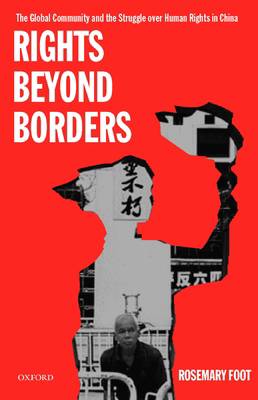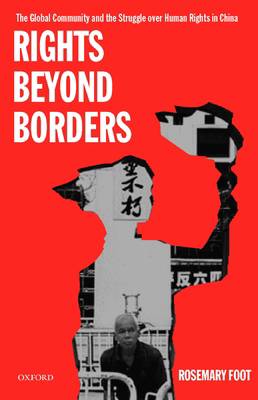
- Afhalen na 1 uur in een winkel met voorraad
- Gratis thuislevering in België vanaf € 30
- Ruim aanbod met 7 miljoen producten
- Afhalen na 1 uur in een winkel met voorraad
- Gratis thuislevering in België vanaf € 30
- Ruim aanbod met 7 miljoen producten
Zoeken
Rights Beyond Borders
The Global Community and the Struggle Over Human Rights in China
Rosemary Foot
Paperback | Engels
€ 104,95
+ 209 punten
Uitvoering
Omschrijving
Over the five decades since the establishment of the United Nations Charter and Universal Declaration of Human Rights, issues of human rights have become a dominant feature of our global community. An acceptance has grown of the treatment of individuals and groups within domestic societies as a legitimate focus of global attention. Played out dramatically in the US media, China has received a huge amount of this global attention, with many democracies sustaining a human rights element in their policies towards China. This book examines the affect that this normative evolution has had on the behavior of individuals, states, institutions, and advocacy networks, and assesses its impact on the relations between key international players and China. Focusing on the period since the Tiananmen bloodshed in June 1989, Rosemary Foot examines China's international and internal responses to the global attention paid to their human rights record. Foot expertly uncovers the conditions under which international human rights norms influence behavior, and determines how norms operate in the global system.
Specificaties
Betrokkenen
- Auteur(s):
- Uitgeverij:
Inhoud
- Aantal bladzijden:
- 308
- Taal:
- Engels
Eigenschappen
- Productcode (EAN):
- 9780198297765
- Verschijningsdatum:
- 18/01/2001
- Uitvoering:
- Paperback
- Formaat:
- Trade paperback (VS)
- Afmetingen:
- 156 mm x 234 mm
- Gewicht:
- 439 g

Alleen bij Standaard Boekhandel
+ 209 punten op je klantenkaart van Standaard Boekhandel
Beoordelingen
We publiceren alleen reviews die voldoen aan de voorwaarden voor reviews. Bekijk onze voorwaarden voor reviews.











